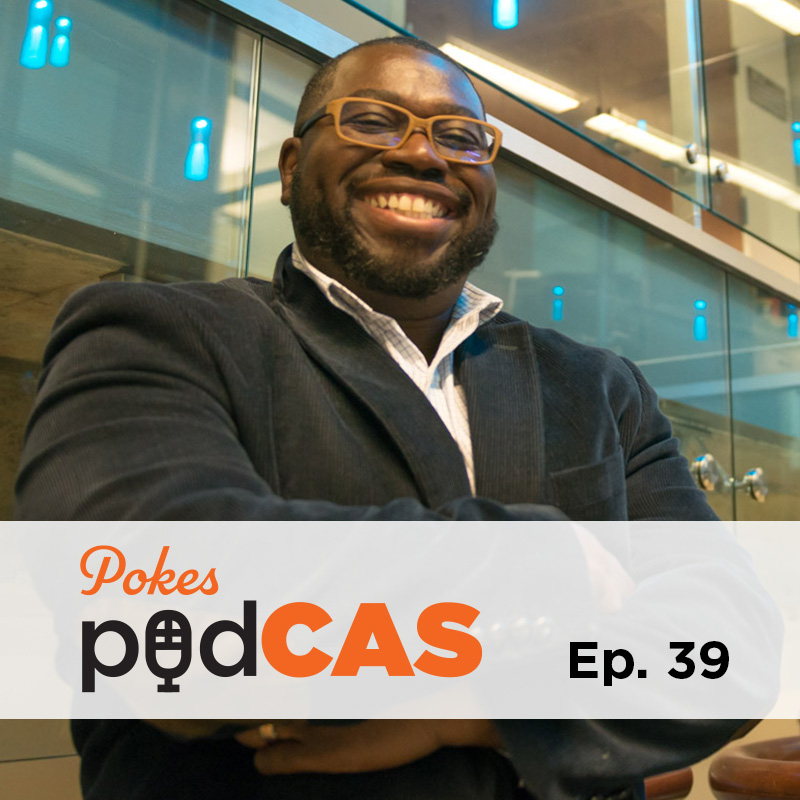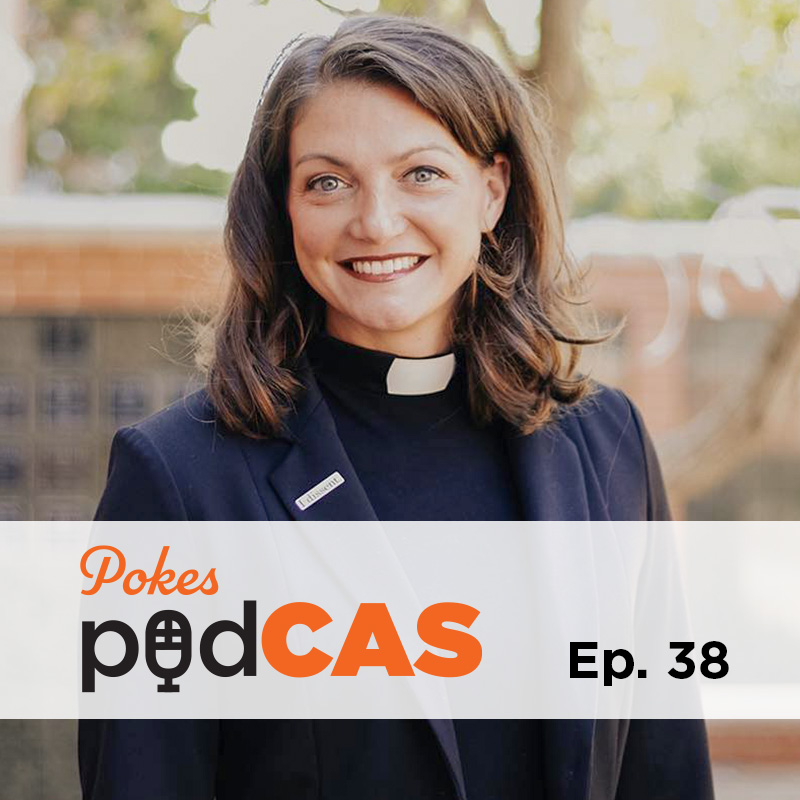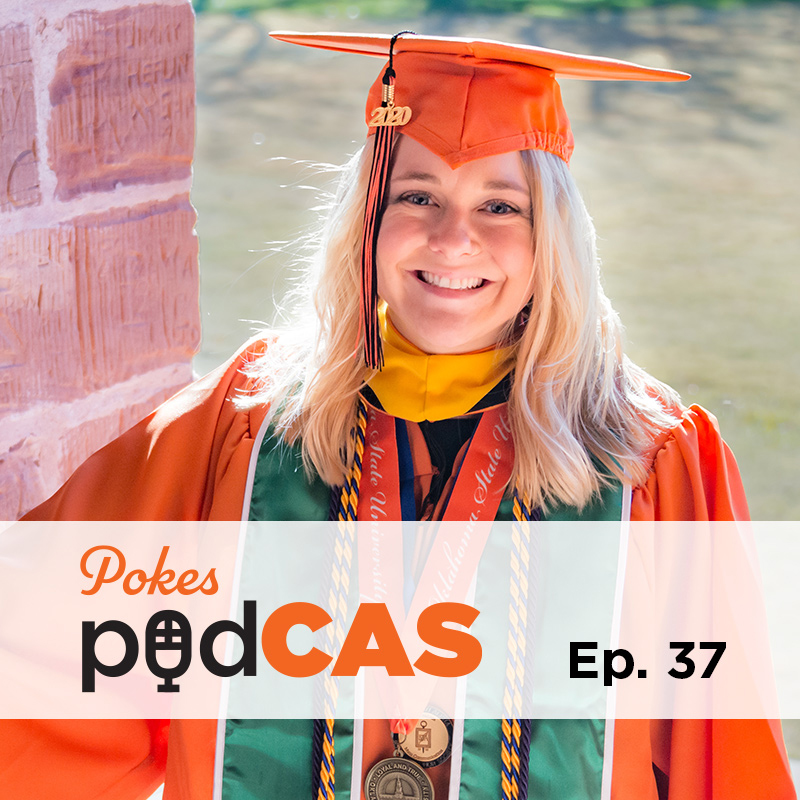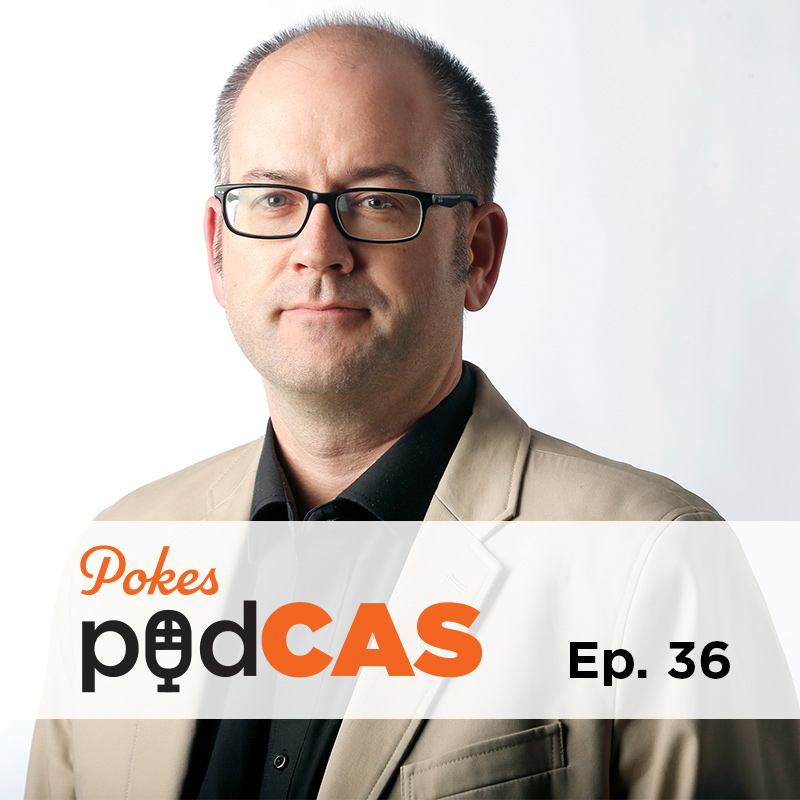Greetings from the (admittedly very messy) desk of the Director of Public History! It has been humbling to witness all the hard work and energy that went into our projects this year. Despite the stress of facing a global pandemic that brought many challenges and disappointments, our students and colleagues completed truly inspiring projects, internships, exhibits, and research. It is a testament to the talent, strength and dedication of our program that we are entering the new year with overwhelmingly positive momentum.
CAS News
Notes from History's Director of Graduate Studies, Dr. Douglas Miller
In such a profoundly stressful climate, our graduate students in History remained productive and energetic, and inspired me throughout the year, both in the classroom and beyond. And when they also struggled as humans in that stressful context, they helped preserve each other’s spirit. It is a pleasure serving as Director of Graduate Studies for this strong and impressive cast of current graduate students.
Dr. Tom Jorsch reflects on legacy of iconic professor, establishes Dr. Ron Petric Memorial Scholarship
Dr. Ron Petrin, a longtime member of the Department of History faculty, died the Wednesday before Thanksgiving after a long illness. He will be missed as a friend, colleague and mentor, and remembered for his many contributions to the Department.
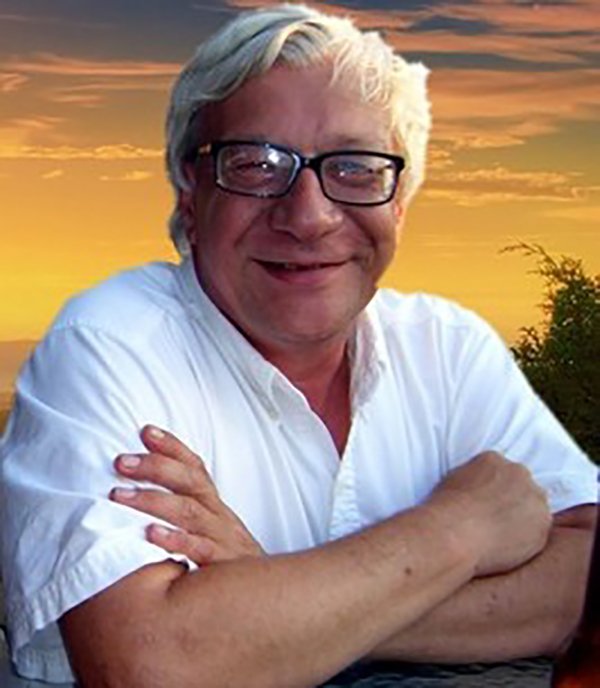 Dr. Petrin was especially passionate about working with students, a characteristic from which all of his students benefitted. In the classroom his teaching demonstrated his incredible breadth of knowledge that inspired undergraduate and graduate students alike. His commitment to students excelled even more outside the classroom. He served on dozens and dozens of M.A. and Ph.D. committees, shepherded graduate students through the rigorous process of completing degrees, drove students to conferences throughout the southern plains to present their research and begin the process of becoming part of the profession, and was active in Phi Alpha Theta.
Dr. Petrin was especially passionate about working with students, a characteristic from which all of his students benefitted. In the classroom his teaching demonstrated his incredible breadth of knowledge that inspired undergraduate and graduate students alike. His commitment to students excelled even more outside the classroom. He served on dozens and dozens of M.A. and Ph.D. committees, shepherded graduate students through the rigorous process of completing degrees, drove students to conferences throughout the southern plains to present their research and begin the process of becoming part of the profession, and was active in Phi Alpha Theta.
Many of his students remember fondly his – as one of his colleagues kiddingly called it – “holding court” at a local establishment. For those of us who joined Dr. Petrin for a beverage on a Friday night, those gatherings, where historiographical controversies and the problems of the day were thoroughly debated, felt like a French salon – the Okie surroundings notwithstanding. These meetings had the happy effect of building strong bonds of friendship among those involved, with Dr. Petrin serving as the lynchpin that connected generations of students to each other and OSU.
His mentorship continued after graduation. One of his former students, Shelly Lemons, commented that she often sought his advice on job changes, navigating administrative hassles, and whether to pursue certain opportunities. Be it for a triumph, setback, or moment of uncertainty, Dr. Petrin's counsel always served to make her "feel like I was doing the right things and on the right track, building my confidence that I could do whatever it was I needed to do. For that I am forever grateful."
He of course had many qualities and idiosyncrasies that can’t help but make one smile: his impish laugh, his refusal to drive on gravel roads (having been warned when he first moved to Oklahoma that when the pavement ends you best turn around), and his left hand tucked deftly in the back of his pants as he explained complicated ideas amid a cloud of chalk dust in front of the tiny blackboard in the conference room in Life Sciences West.
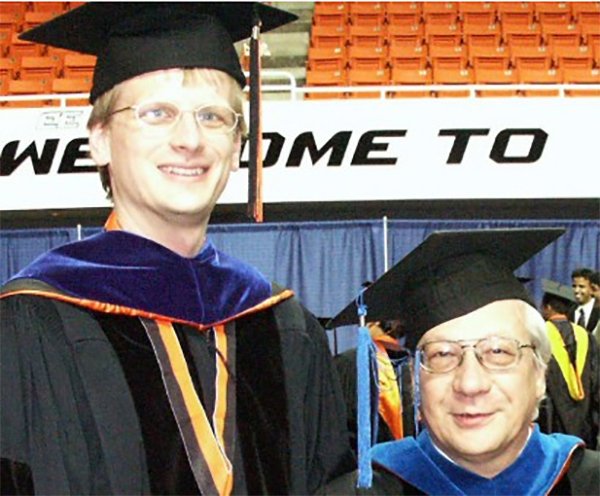 More than anything, though, he’ll be remembered for his generosity: with his intellectual gifts, with his patience, and with his time. For those of us fortunate enough to have spent time with Dr. Petrin as part of the History Department, we are much better – personally and professionally – for that experience.
More than anything, though, he’ll be remembered for his generosity: with his intellectual gifts, with his patience, and with his time. For those of us fortunate enough to have spent time with Dr. Petrin as part of the History Department, we are much better – personally and professionally – for that experience.
In honor of Dr. Petrin, the History Department and former students have established the Dr. Ron Petrin Memorial Scholarship that will help current and future History students attend conferences and conduct research. It seemed the most fitting way to continue his legacy of helping students while connecting generations of students. To donate to this fund, please visit philanthropete.osugiving.com/project/24255.
Dr. Thomas F. Jorsch
Instructor of American Studies
Oklahoma State University
OSU Ph.D. in American History (2004)
Department of History series highlights five faculty books
This year the Department of History launched a five-part public program called "Why it Matters: Talks on the American Past," featuring new books by OSU history faculty each month via Facebook Live. We had a great turnout, with audience members live-streaming the conversation and asking questions in real time. Head of Department Dr. Brian Hosmer, who gamely took on the role of series moderator, first welcomed Dr. Holly Karibo in November to discuss the history of border control, followed by Dr. Laura Arata in December for a conversation about the history of tourism in the 19th-century American West. The Spring events featured Dr. Justin Prince discussing the transformation of American field artillery in World War I, Dr. David Gray examining the evolution of office management ideology from World War I through the Cold War, and Dr. Richard Boles covering race in America's churches. The broadcasts are posted to YouTube, Facebook or OStateTV for those who missed it.
Episode 40: Black History Month, the Center for Africana Studies, and racialization, with Dr. Erica Townsend-Bell
The Center for Africana Studies is a resource housed in the College of Arts and Sciences but available for all Oklahoma State University students, faculty and staff to gain knowledge about Africa and its Diaspora. That obviously covers a lot, so the center’s new director, Dr. Erica Townsend-Bell from the Department of Political Science, has a big job. We talk about that, race-related issues in America and globally, and why the terms used on the Census form are more important than you might think.
Episode 39: Black History Month, melanin research and chemistry is awesome, with Dr. Toby Nelson
Dr. Toby Nelson, an associate professor in the Department of Chemistry, was inspired by his hometown hero – Ronald McNair, the second Black astronaut. Dr. Nelson talks about that and how he is working with RPX Technologies, a Stillwater-based company founded by OSU alumni, to save lives with a product called DRACO. And he explains his view that chemistry is awesome, with highlights from his other research areas, which are based on melanin. You will learn that it can do a whole lot more than you think.
Episode 38: All of us need all of us to make it, with Rev. Dr. Lori Walke
Lori Allen Walke earned a 2005 political science degree and a 2006 master’s in health care administration at OSU, where she was a Cowgirl basketball player and Miss OSU. She went on to earn a law degree and passed the Oklahoma Bar exam, but changed her career path and completed a Master of Divinity. After becoming an ordained minister, she added a Doctor of Ministry. Today she is the Senior Pastor at Mayflower Congregational Church in Oklahoma City. We talk about lessons she learned at OSU, what it’s like being married to a politician, and how the couple advocates for what they believe in. She also tells the story of how the final seconds of her basketball career became one of the best feel-good moments in the history of Gallagher-Iba Arena.
Episode 37: Orange Gowns, strategic communications and Chipotle, with Hannah Ratigan
Hannah Ratigan was the type of student who walked around campus when she had free time – which was rare. So the way her undergraduate experience finished, with COVID-19 restrictions, was especially disappointing for her. As the Orange Gown Recipient for the College of Arts and Sciences, she did enjoy leading her peers in the School of Media and Strategic Communications to their smaller ceremony. We talk about what strategic communication is, her philanthropic work and how a fateful trip to Chipotle changed her life.
Episode 36: A life in local media and career advice (be a quitter), with Jason Collington
Jason Collington is a Stillwater native who grew up reading the Tulsa World. After his 1998 graduation from OSU in what is now the School of Media and Strategic Communications, he worked for the Associated Press before being hired by the World. He spent the next 21 years climbing the company’s ladder, reaching the top to became the publication’s new editor on Oct. 1, 2020. About 60 days later, we talked about the future of journalism, his goals for the Tulsa World, and his advice for up and coming communicators. He also explained why he tells everyone they should be a quitter.


